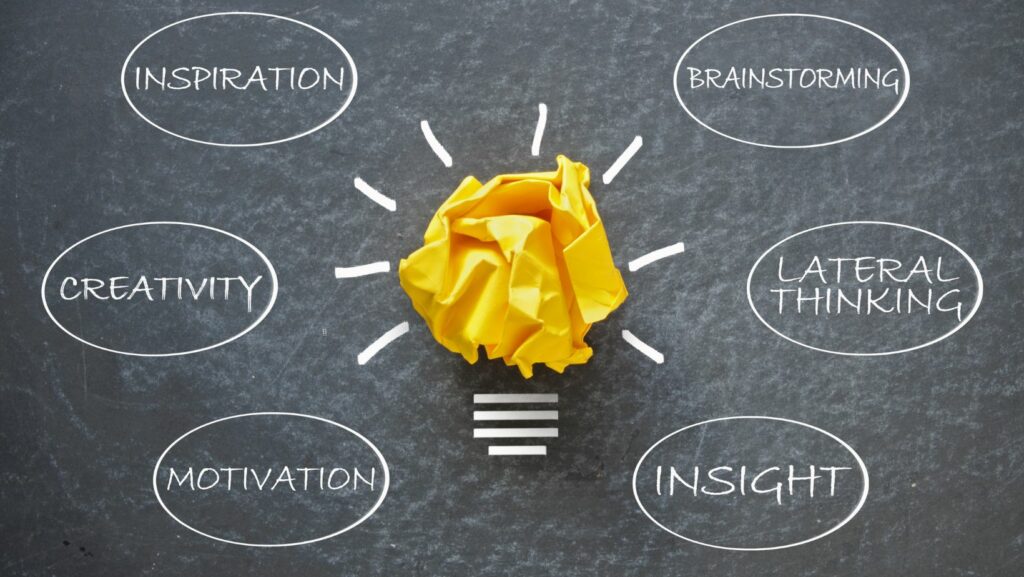In the hustle and bustle of today’s fast-paced world, the quest for holistic well-being often takes a backseat. But what if the secret to optimal health lies in the harmonious balance of mind and body? This article delves into the fascinating world of mind solutions, exploring their potential to transform lives.From ancient practices like yoga and meditation to modern techniques like biofeedback and cognitive behavioral therapy, mind solutions have proven their worth in promoting health and wellness. They’re not just about physical fitness; they’re about achieving a state of mental and emotional equilibrium that enhances overall quality of life.
Mind And Body Solutions
The Connection Between Mind and Body
 Pulling cues from biology, psychology, and various sciences, the relationship between mind and body comes into focus. Pioneering research, such as a study published in the “Journal of Psychosomatic Research”, highlights the symbiotic link between the mind and body. The findings suggest that the mind influences physical health, and vice-versa, the body’s state can impact the mental and emotional wellbeing.For instance, chronic stress, a phenomenon born in the mind, can trigger a cascade of health issues like heart disease, poor digestion, insomnia, and weakened immune system. Conversely, adopting healthy behaviors such as regular nutritious meals and a disciplined exercise routine, both physical initiatives, have been seen to reduce anxiety and elevate mood, positively influencing mental health.
Pulling cues from biology, psychology, and various sciences, the relationship between mind and body comes into focus. Pioneering research, such as a study published in the “Journal of Psychosomatic Research”, highlights the symbiotic link between the mind and body. The findings suggest that the mind influences physical health, and vice-versa, the body’s state can impact the mental and emotional wellbeing.For instance, chronic stress, a phenomenon born in the mind, can trigger a cascade of health issues like heart disease, poor digestion, insomnia, and weakened immune system. Conversely, adopting healthy behaviors such as regular nutritious meals and a disciplined exercise routine, both physical initiatives, have been seen to reduce anxiety and elevate mood, positively influencing mental health.
The Rise of Holistic Approaches
In response to comprehending this synergistic mind-body relationship, holistic approaches have gained substantial attention in recent years. An article in “The Lancet Psychiatry”, a prestigious medical journal, identified the rising interest in holistic methods as it simultaneously acknowledges the urgency of treating the human entity as an integrated whole – a unity of mind, body, and spirit.Take, for example, yoga. Practicing yoga, according to “Harvard Medical School”, goes beyond the scope of mere physical fitness. Yoga incorporates mindfulness, breathing exercises, and physical postures, simultaneously addressing the mind and body. The result is a comprehensive and integrative health strategy that fosters both bodily health and mental wellbeing. Conversely, cognitive behavioral therapy, though primarily a psychological treatment, has shown to alleviate physical symptoms for conditions like chronic pain and irritable bowel syndrome, once again emphasizing the interplay between mind and body.
Types of Mind Solutions
 As holistic wellness strategies increase in preference, specific mind-body solutions have gained prominence. These practices, inclusive but not limiting to meditation, mindfulness, yoga, physical movement, and nutrition, recognized for their interlinking and comprehensive approach, provide substantial benefits for overall health.Meditation and mindfulness practices stand prominent amongst mind solutions. They form the cornerstone of holistic health practices, primarily focusing on bridging the mind-body gap. Whilst meditation involves engaging the mind in a focus, mindfulness shifts attention to the current moment. One highly effective practice is morning meditation for anxiety, which helps individuals start their day with a calm mind, reducing stress levels and promoting a sense of peace. American Mindfulness Research Association (AMRA) reports that these practices reduce stress, improve cognitive function, and enhance overall wellbeing. With regular practice, they offer a sustainable and effective framework for achieving balance between the mind and the body. So, they’re worth every effort. With perseverance, patience, and the right guidance, anyone can integrate these solutions into their lives and reap the benefits.
As holistic wellness strategies increase in preference, specific mind-body solutions have gained prominence. These practices, inclusive but not limiting to meditation, mindfulness, yoga, physical movement, and nutrition, recognized for their interlinking and comprehensive approach, provide substantial benefits for overall health.Meditation and mindfulness practices stand prominent amongst mind solutions. They form the cornerstone of holistic health practices, primarily focusing on bridging the mind-body gap. Whilst meditation involves engaging the mind in a focus, mindfulness shifts attention to the current moment. One highly effective practice is morning meditation for anxiety, which helps individuals start their day with a calm mind, reducing stress levels and promoting a sense of peace. American Mindfulness Research Association (AMRA) reports that these practices reduce stress, improve cognitive function, and enhance overall wellbeing. With regular practice, they offer a sustainable and effective framework for achieving balance between the mind and the body. So, they’re worth every effort. With perseverance, patience, and the right guidance, anyone can integrate these solutions into their lives and reap the benefits.
Yoga and Physical Movement
Yoga and physical movement are another critical element in the arsenal of mind-body solutions. Yoga, a practice rooted in ancient traditions, aligns physical postures, breathing exercises, and meditation. Its versatility, according to the American Osteopathic Association, offers an accessible platform to individuals of varying physical capabilities, and for some practitioners, elbow arm support braces can provide added stability during weight-bearing poses or modified flows. Embodied physical movements also extend beyond yoga, including Tai Chi and Pilates. These exercise modes do more than just strengthen physical health; they have profound implications for improving mental clarity and stress resilience.
Nutrition and Its Impact on Wellbeing
 Nutrition stands as an essential component of mind-body solutions. The food consumed affects not only physical health but also impacts mental wellbeing. Harvard Medical School cites a direct correlation between diet and mental health, emphasizing the role of a balanced diet in maintaining psychological equilibrium. Nutritional psychiatry, an emerging field, explores this connection further, advocating for dietary adjustments that favor whole foods, lean proteins, fruits, and vegetables.Incorporating these holistic mind solutions into daily routines creates a robust approach towards achieving personal wellbeing. Consistency in these practices assists in harmonizing physical health with mental awareness, offering an integrated pathway to holistic health.They’re a commitment to an improved quality of life, better mental health, and a healthier body.
Nutrition stands as an essential component of mind-body solutions. The food consumed affects not only physical health but also impacts mental wellbeing. Harvard Medical School cites a direct correlation between diet and mental health, emphasizing the role of a balanced diet in maintaining psychological equilibrium. Nutritional psychiatry, an emerging field, explores this connection further, advocating for dietary adjustments that favor whole foods, lean proteins, fruits, and vegetables.Incorporating these holistic mind solutions into daily routines creates a robust approach towards achieving personal wellbeing. Consistency in these practices assists in harmonizing physical health with mental awareness, offering an integrated pathway to holistic health.They’re a commitment to an improved quality of life, better mental health, and a healthier body.

